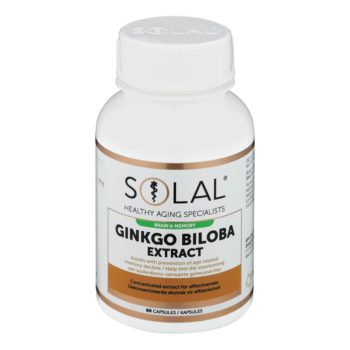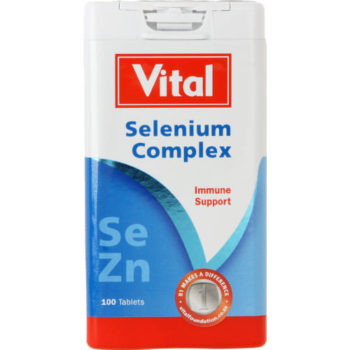Swooping and dipping hormones in the years leading up to your last period can cause a lot more than hot flushes. We share some of the most surprising perimenopause symptoms…
What is perimenopause?
It is the years running up to your final period and usually begins in your late 40s to early 50s, although it can start any time from your early 40s.
Surprising perimenopause symptoms
Tingling tongue, achy joints or itchy skin? Even those with their heads buried deeply in the sand when it comes to any sign of perimenopause have heard of the classic hot flushes, but you may be surprised to learn that a range of less familiar, and frankly at times, bizarre symptoms might also occur.
Itchy skin
Itchy skin (the medical name for it is pruritus) is another common symptom, again usually caused by drier skin due to loss of oestrogen and collagen. Acne, thinning skin, wrinkles and changes in pigmentation are other reported symptoms.
Unusual sensations, known as paresthesia, can also occur including tingling, numbness and something called ‘formication’ an unpleasant sensation that feels as if insects are crawling on or under your skin. These are thought to be caused by the effects of fluctuating hormones on the central nervous system. See your GP if you experience these.
Help yourself
- Increase your intake of omega-3 fatty acids which are found in foods such as sardines, walnuts, fortified eggs, and herrings.
- Drink 6-8 glasses of water a day to keep your skin hydrated.
- Hot water can be drying so shower rather than bathe and use warm water.
- Avoid irritants. Smoky atmospheres, stress and lack of sleep can all exacerbate itchiness of the skin.
Foggy brain
US research found that two thirds of women experience memory lapses, poor concentration and other cognitive changes.
“These symptoms are thought to be due to the disrupted balance between oestrogen and progesterone,” says Dr Domoney.
Symptoms appearing perimenopausally are usually worst in the first post –menopausal year, and seem to improve after that.
Help yourself
- Stress exacerbates cognitive problems so take regular breaks and give yourself time to wind down. Even if you’re going through a difficult phase, make time to see friends.
- Make notes, use post-its and your smartphone to remind you of appointments
- A supplement of ginkgo biloba may help. Studies suggest it improves blood flow to the brain.
Try Solal Ginkgo Biloba extract, R214.95 for 60 capsules.

A burning tongue
One of the stranger symptoms that affects four out of 10 women, this is thought to be as a result of activation of pain-sensitive nerve cells surrounding the bitter taste buds at the back of the tongue, which can be damaged by dwindling oestrogen. Symptoms, which can also affect gums and lips, typically start between three years before and 12 years after menopause.
Help yourself
- Drink plenty of fluids, but avoid fizzy drinks.
- Steer clear of alcohol and products containing it, such as mouthwashes as they irritate the lining of your mouth.
- Avoid spicy foods and acidic foods and drinks, such as tomatoes, orange juice, soft drinks and coffee.
- Try mild or flavour-free toothpastes, or ones for those with sensitive teeth.
Tummy troubles
A 2009 review found that irritable bowel syndrome (IBS) symptoms such as abdominal pain, bloating and changes in bowel patterns together with diarrhoea and/ or constipation become more common perimenopausally in women both with and without IBS. They are thought to be caused by the effects of fluctuating oestrogen and progesterone on pain pathways in the gut and brain.
Help yourself
- Exercise, stress management and regular meals, and limiting the intake of alcohol and caffeinated and fizzy drinks, can help.
- Insoluble fibre (bran), found in wholewheat bread and cereals, may exacerbate symptoms. However soluble fibre found in oats and pulses (pre-soaked), can help with bloating so try and eat them daily.
- Probiotics can help with IBS.
You can also try a probiotic supplement such as Nutrilida Lp299v probiotics, R339,95 for 60 capsules.

Achy joints
More than half of women experience joint and muscle aches and pains during perimenopause. Dr. Currie explains.
“Oestrogen is responsible for stimulating collagen, a fibrous protein that gives the skin strength and resilience, and helps act as a scaffold for the skin.”
Danish research also suggests that oestrogen has an anti-inflammatory effect.
Help yourself
- Exercise may feel uncomfortable, but it can help. Yoga, walking and muscle strengthening exercises can help to stabilise joints.
- A hot water bottle or heat pack can increase mobility, while a cold pack reduces inflammation and swelling.
- Eat more Brazil nuts – they are among the best sources of selenium, which can help to prevent arthritis.
Also try a supplement such as Vital Selenium Complex, R149 for 100 capsules.

A skipping heartbeat
“Palpitations, fast or irregular heartbeats are very common in perimenopause,” says Dr Currie.
“We don’t know why, but fluctuating levels of oestrogen, causing sudden widening of the blood vessels – the same mechanism that causes hot flushes – may be responsible.”
A recent study found that heart rate increased by four beats a minute during a hot flush. Palpitations often occur at night or while you’re relaxing, and are usually more of a nuisance than anything harmful.
Help yourself
- Regular meditation can help keep palpitations at bay
- Rest and breathe quietly for five minutes – they will usually subside.
- Steer clear of alcohol and caffeine, which can worsen palpitations.
- Learn how to take your pulse so you can work out when it’s fast. It should be between 60 and 100 beats a minute.
- If dizziness, fainting or tightness in the chest or neck accompany palpitations, seek medical help immediately.
Dizziness
Although they don’t often appear in medical textbooks, dizziness, vertigo and light headedness frequently crop up on patient websites and forums, and, says Dr Currie, often occur with flushes. The cause is unknown, but a 2010 study suggests a type of headache called vestibular migraine, which may or may not cause pain, could be responsible.
Help yourself
- Keep a diary to see if you can identify and avoid any triggers – stress, poor sleep, light and noise or foods such as coffee, blue cheese, chocolate and red wine are all common causes.
- Stress management, exercise and limiting salt intake, especially around the time of your period, may help.
Quick relief
To help alleviate some of these surprising symptoms of perimenopause, doctors suggest taking low doses of hormone replacement therapy (HRT) for three months – the length of time needed for oestrogen to take effect. If you don’t want to take HRT and have been advised against it, chat to your GP or gynaecologist for alternative options.
ALSO SEE:
Feature Image: Pexels

